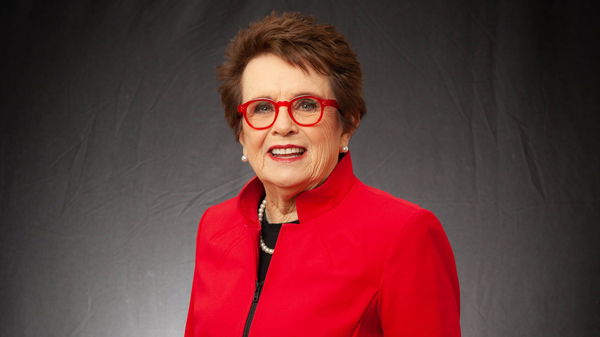

Billie Jean King is termed as one of the most important figures in tennis. She has had a legendary career herself, winning an astonishing 39 Grand Slam titles across formats. The American tennis icon has 12 major titles in singles, 16 in women’s doubles, and 11 Grand Slam mixed doubles titles. She was a force to be reckoned with during the 70s and 80s.
Further, she was a leader who was often vocal about women’s rights. The 78-year-old was an architect in bringing women’s tennis on par with the men’s game. Recently, she talked about the situation with women leaders.
ADVERTISEMENT
Article continues below this ad
Billie Jean King talks about women leaders
Patrick McEnroe conducted a podcast with Billie Jean King. The two former players were discussing the importance of mental health and the need to open up on the issue. Further, they cited the example of Naomi Osaka, who had taken a break from tennis to cope with her deteriorating mental health.
While discussing this issue, Billie Jean King brought up the condition of women leaders. She said, “Another thing I think is important just for women in general, is when a woman leads or speaks up, for some reason, they always think we’re just talking to women. That’s why we don’t have a US President that is a woman. People do not picture a woman leading everyone. Other countries do, but the US for some reason, we never had a woman President… So, when a woman speaks and leads, she’s also leading for everyone.”

via Reuters
American Football – NFL – Super Bowl LVI – Cincinnati Bengals v Los Angeles Rams – SoFi Stadium, Inglewood, California, United States – February 13, 2022 Former tennis player Billie Jean King performs the coin toss before the game REUTERS/Mario Anzuoni
Further, she added, “When people think it’s only half the population, it makes us earn less, would not include it when they do that. Another thing is they call us ladies but they call the guys men. I think we’re women, I don’t like ladies. I like women or girls. All those little words are very, very, very important and powerful. Words are definitely powerful.”
ADVERTISEMENT
Article continues below this ad
Why is the American legend an important figure in tennis?
Her most memorable victory came in the ‘Battle of the Sexes’ when she defeated Bobby Riggs in 1973. It was a significant match to bring women’s tennis on par with that of men’s. Additionally, she formed the Women’s Tennis Association in the same year.
ADVERTISEMENT
Article continues below this ad

ADVERTISEMENT
ADVERTISEMENT
ADVERTISEMENT
ADVERTISEMENT

